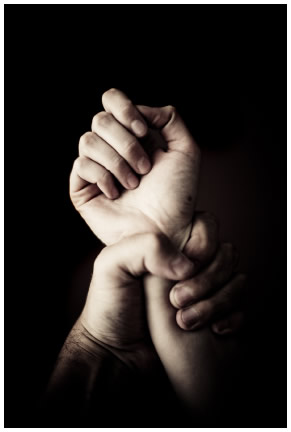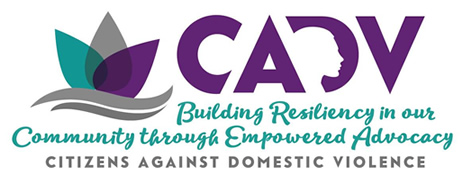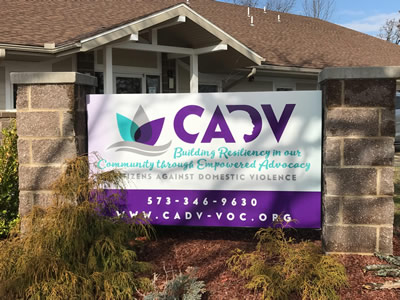WHAT IS DOMESTIC VIOLENCE?
Domestic violence is a pattern of assaultive and coercive behaviors that adults or adolescents use against their current or former intimate partners or other family members within the home. Domestic violence occurs in families and in intimate relationships where the perpetrator and the victim are currently or previously have been dating, living together, married or divorced.
WHO IS AFFECTED BY DOMESTIC VIOLENCE?
Domestic and sexual violence occurs in every culture, country and age group. It affects people from all socioeconomic, educational and religious backgrounds and takes place in same sex as well as heterosexual relationships. Women living in poverty experience violence by their partners at higher rates partially because they have fewer options. Children are also affected by domestic violence, even if they do not witness it directly.
WHAT YOU CAN DO IF YOU ARE BEING ABUSED
Talk with someone you trust about the abuse. Call Citizens Against Domestic Violence/Victim Outreach Center Hotline at 1-888-809-SAFE (7233). Call the police if you are in danger. Remember, you know your situation better than anyone else. Don’t let someone talk you into doing something that isn’t right for you.
FREE & CONFIDENTIAL SERVICES AVAILABLE AT CADV
WARNING SIGNS OF DOMESTIC AND SEXUAL VIOLENCE
Domestic and Sexual Violence is a socially supported behavior, learned through observation, experience and reinforcement. It is learned through our culture, institutions, families, schools and peer groups. Domestic and Sexual Violence is not impulsive, but purposeful behavior. The batterer chooses a range of abusive tactics that are reinforced by violence or the constant threat of violence. Some of those tactics include:
- Using Isolation
- Emotional Abuse
- Using Economic Abuse
- Sexual Abuse
- Using Children
- Using Coercion and Threats
- Using Male Privilege
- Intimidation
If you know someone who may be in an abusive situation here are some tips:
The Impact of Trauma on Interaction and Engagement of Survivors:
Trauma can affect a survivor’s:
- Interactions
- Stress tolerance and ability to regulate emotions
- Responses to negative feedback
- Ability to screen out distractions
It could look like:
- A survivor seeming ‘cool’ and detached
- A survivor who is highly sensitive and whose feelings are easily hurt
- A survivor is suspicious and not trusting
- A survivor does not ‘read’ or trust warmth and caring from staff and other survivors
When someone is experiencing a trauma response, they may:
- Not be able to talk to you about what is happening
- Not notice what is happening
- Not know what will help or think that nothing will
- Need some time alone or be comforted by having you near
- Feel too upset or overwhelmed to interact with you
- Not want to say what she needs because she does not feel safe enough, she may want to protect you, or she may believe that she should not say
Connection and Reflection Skills:
It is important to develop communication skills that acknowledge a person’s trauma-related barriers to communication, while also following the survivor’s lead in the conversation. Our connection and reflection skills help to make a connection with the survivor. Connection skills include our ability to engage, be available, be present, convey empathy, avoid judgment, and be open and honest. These skills are often considered a ‘lifeline’ for the survivor to use when they are ready. Reflection skills include our self-awareness and responsibility for understanding our own needs and reactions, both of which help to sustain our connection skills.
GET HELP NOW.
24 HOUR EMERGENCY HOTLINE
888-809-SAFE
or 888-809-7233
WHAT YOU CAN DO IF YOU ARE BEING ABUSED
Talk with someone you trust about the abuse.
Call the CADV Hotline or Victim Outreach Center HOTLINE 888-809-7233
Call police if you are in immediate danger!




